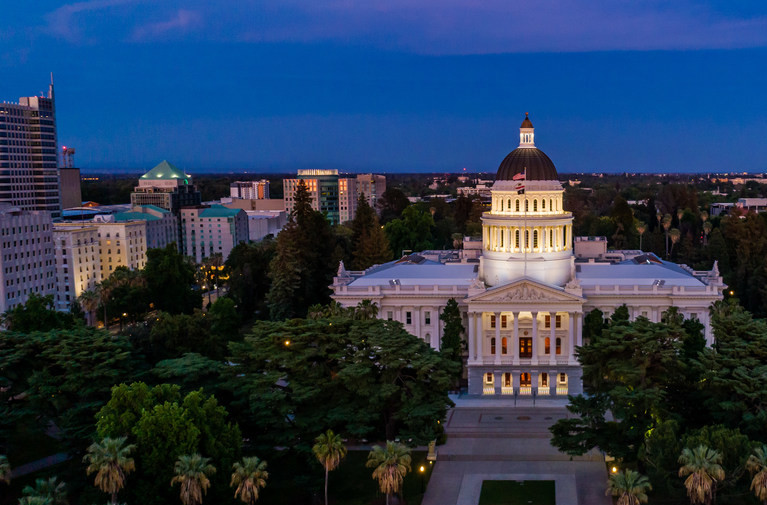Trending Topic: Partisan Redistricting Battles Intensify Ahead of 2026 Midterms
Sacramento, CA – August 21, 2025 – The California Supreme Court on Wednesday rejected a petition by Republican state legislators to halt Governor Gavin Newsom’s plan to redraw California’s congressional map, clearing the way for a Democratic-led effort to counter Republican gerrymandering in Texas. The decision, reported by The Hill and other outlets, allows the California Legislature to vote as early as Thursday on a package of bills to set up a November 4, 2025, special election, where voters will decide on new district boundaries aimed at flipping five Republican-held seats to bolster Democratic control ahead of the 2026 midterms.
The Legal Challenge and Court’s Ruling
Four Republican lawmakers—Senators Tony Strickland and Suzette Martinez Valladares, and Assembly members Tri Ta and Kathryn Sanchez—filed an emergency petition on August 19, 2025, arguing that the Democratic-controlled Legislature violated the California Constitution’s 30-day public review period for new legislation by using a “gut and amend” tactic. This strategy involved replacing the text of bills introduced in February with redistricting language on August 18, bypassing the review period. The petitioners claimed this process silenced public input and undermined the state’s independent Citizens Redistricting Commission, established in 2010 to prevent partisan map-drawing.
In a brief order, the California Supreme Court stated, “Petitioners have failed to meet their burden of establishing a basis for relief at this time under California Constitution article IV, section 8,” denying the request to delay the legislative vote until September 18. The court provided no further explanation, prompting the Republican lawmakers to vow continued legal and ballot-box challenges, calling the Democratic plan an “unconstitutional power grab” that could cost taxpayers over $200 million for the special election.
Context of the Redistricting Push
The Democratic initiative, led by Newsom, responds to a Republican-led redistricting effort in Texas, where a GOP-crafted map, backed by President Donald Trump, aims to create five new Republican-leaning congressional seats. Approved by the Texas House on August 20, 2025, this move broke with the tradition of redrawing maps only after the decennial census, prompting California Democrats to counter with their own mid-decade redistricting. The proposed California map would increase Democratic seats from 43 to 48 out of 52, targeting competitive districts in Orange County, San Diego County, and the Central Valley.
Newsom framed the effort as a defense against GOP tactics, stating, “Look, what we’re doing neuters, neutralizes what’s happening in Texas.” He emphasized the November 4 election as a chance for voters to “stand up to Donald Trump” and protect democratic principles. Former President Barack Obama also endorsed the plan, calling it a “responsible” response to Texas’s actions during a Democratic fundraiser.
Public and Political Reactions
The redistricting push has sparked intense debate. A legislative hearing on August 19 turned heated, with Republican lawmakers clashing with Democrats over the plan’s cost and transparency. Critics, including Southern California Representative Young Kim, labeled it a “Sacramento power grab,” arguing it undermines the voter-approved Citizens Redistricting Commission. Public comments, with over 13,000 submitted via an online portal, largely opposed the plan, citing concerns about bypassing the bipartisan commission and prioritizing political gain over issues like housing or crime.
On X, sentiment reflects the polarized debate, with @DemocracyDocket noting the court’s ruling as a victory for Democrats, while @SteveHiltonx criticized the plan as undemocratic, enabled by prior Democratic gerrymandering. The controversy underscores a broader national “arms race” in redistricting, with states like Missouri and Indiana also considering mid-decade map changes.
Looking Ahead
With the court’s ruling, the Democratic-controlled Legislature, holding a supermajority, is poised to pass the redistricting bills by the August 22 deadline to secure the November election. If approved by voters, the new maps could reshape California’s congressional landscape, potentially offsetting GOP gains elsewhere. However, Republicans have signaled further legal challenges and are calling for a federal investigation into the map-drawing process, alleging some Democratic legislators drew maps to benefit themselves.
As the 2026 midterms approach, with Republicans holding a slim 219-212 House majority, the outcome of California’s redistricting effort could significantly influence national politics. The ongoing legal and political battles highlight the high stakes of partisan redistricting in an increasingly divided electoral landscape.
Sources: TheHill.com, ABC7.com, Law.com, Reuters.com, TheGuardian.com, CalMatters.org
